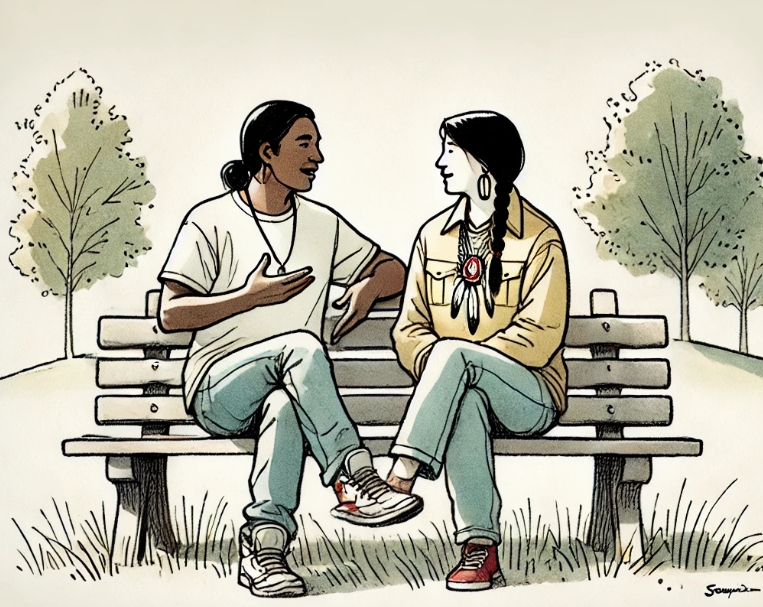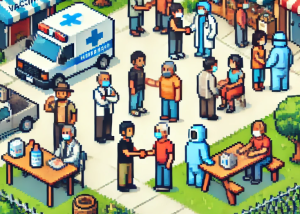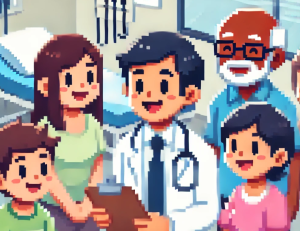
Most Public Health Programs Ignore These Key Voices
Trust Can’t Be Taught in a Lecture Hall
You can’t data-collect your way into someone’s heart. And yet, that’s how most public health programs still train future leaders: enter the community, extract information, exit. But what if real leadership isn’t about mastering statistical software or implementing best practices, but about learning to care? A new perspective article in Frontiers in Public Health by Marina Suzanne Hernandez and Ruth Murcia flips the script on what it takes to truly lead in public health, especially among communities that have every reason not to trust the system.
Why This Study Matters: The Trust Gap is a Leadership Gap
There’s been no shortage of headlines about mistrust in public health, particularly in Black, Latinx, Indigenous, and LGBTQ+ communities. But Hernandez and Murcia argue that what we’re seeing isn’t just a communications crisis. It’s a leadership failure, rooted in outdated educational models and narrow definitions of “evidence.”
Emerging public health professionals, they note, are often forced to set aside their cultural identities to conform to “best practices” that weren’t built for—or with—the communities they aim to serve. This dynamic doesn’t just produce ineffective programs. It reinforces the very systems of exclusion that public health claims to be fighting.
Their solution? Centering care, community-led methodologies, and true interdisciplinarity in public health education and practice.
Rethinking “Hard to Reach”: The Invisibility Framework
One of the most compelling ideas in the paper is the “Scales of Invisibility,” adapted from prior research. These scales reveal how public health often erases certain populations, first in what gets studied (research focus), then in how studies are designed (project design), and finally in how data is collected. The result? A system that labels people as “hard to reach” while actively excluding them.
Instead of continuing to center public health professionals as experts and communities as passive subjects, the authors suggest flipping the model: what if community members weren’t just at the table but making decisions?
This reframe has urgent implications, especially as disinformation campaigns target the very groups already sidelined in mainstream health systems. When people feel unseen and unheard, bad actors have an opening. Mistrust isn’t irrational—it’s earned.
(Re)Building Credibility Through Care
Here’s a simple but radical idea: you can’t be credible to a community you’ve never shown up for. Hernandez and Murcia argue that credibility isn’t about credentials or institutional affiliation—it’s about goodwill. That means moving beyond academic detachment and learning to care in public, visible, and often deeply personal ways.
The authors highlight real-world strategies, such as attending cultural festivals, collaborating with local artists, or simply spending time in everyday community spaces. These acts of presence build the trust that data dashboards and toolkits can’t.
In Oklahoma, for example, the OK Cine Latino Film Festival offers public health professionals a window into Latinx narratives on their own terms. It’s a space to listen, learn, and support—before trying to lead.
Beyond Buzzwords: Why Public Health Isn’t Truly Interdisciplinary (Yet)
Many public health schools tout their interdisciplinary approach, but Hernandez and Murcia call this bluff. Requiring courses in epidemiology, health policy, and biostatistics doesn’t count, they argue, because these domains often share the same assumptions about knowledge, power, and health.
To truly innovate, future public health leaders need exposure to fields like Gender Studies, Literature, Indigenous Studies, and even speculative fiction. Not as electives or afterthoughts, but as essential training in how people make meaning, build resilience, and define what health looks like in their own lives.
This is what the authors call “transdisciplinarity”—a deeper integration that moves beyond silos and toward shared leadership in knowledge creation.
Real-World Methods for Ethical Engagement
What does all this look like in practice? The authors offer a menu of community-rooted research methods that prioritize care, creativity, and co-creation. Among them:
- Pláticas: Conversational storytelling rooted in Latinx feminist traditions, where participants co-create meaning with the researcher, not just respond to a script.
- Porch-sitting: A sacred space of reflection and connection in Black Southern communities, ideal for relationship-building and culturally attuned data collection.
- Photovoice & Collaborative Filmmaking: Methods that let communities decide what counts as data—and how it should be shared.
- Music & Art as Data: Especially powerful among migrant and displaced populations, these methods allow for emotional expression that transcends language and stigma.
- Speculative Fiction & Embroidery: Yes, even sci-fi stories and traditional crafts can surface truths about health, violence, and resilience that no survey ever could.

These methods aren’t just more inclusive—they’re often more accurate, because they’re grounded in the lived realities of the people most affected.
What’s Next: Transforming the Classroom, Too
Training the next generation of leaders starts in the classroom—but many of those classrooms still operate under a “banking model” where students are expected to be neutral, detached, and apolitical.
That model is a problem, especially for first-gen students or those from historically excluded communities. Rather than asking them to strip away their identities to be “objective,” the authors advocate for radical love and care in pedagogy, encouraging students to draw on their lived experiences as a source of insight and power.
Mentorship also matters. Diverse students need mentors who understand not just their projects, but their worlds. That means hiring faculty who look like the students they teach—or at the very least, those willing to confront their own biases with humility and curiosity.
Final Thoughts: Community Care Is the Future of Public Health
This isn’t just a call for nicer classrooms or more inclusive research teams. It’s a call to redefine leadership itself—not as expertise, but as care. In a time when public trust is fractured and health disparities are widening, we need leaders who can hold a story, not just run a regression. We need methods that heal, not just measure. And we need programs that produce not just public health workers, but public health humans.
Join the Conversation
- What methods have you used—or seen used—to build trust with communities?
- If you’re a student or educator, how could your curriculum better support cultural responsiveness?
- What does it mean to truly “care” in public health practice today?



